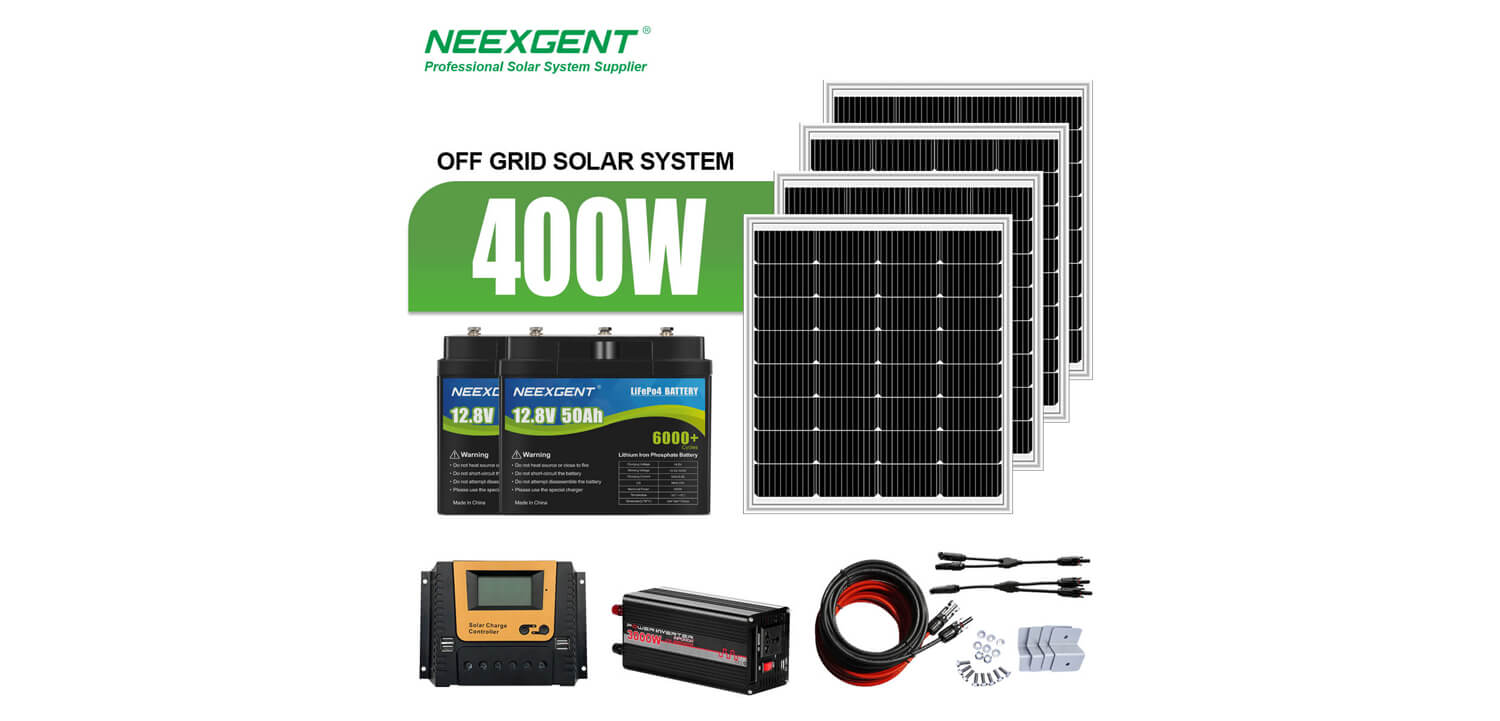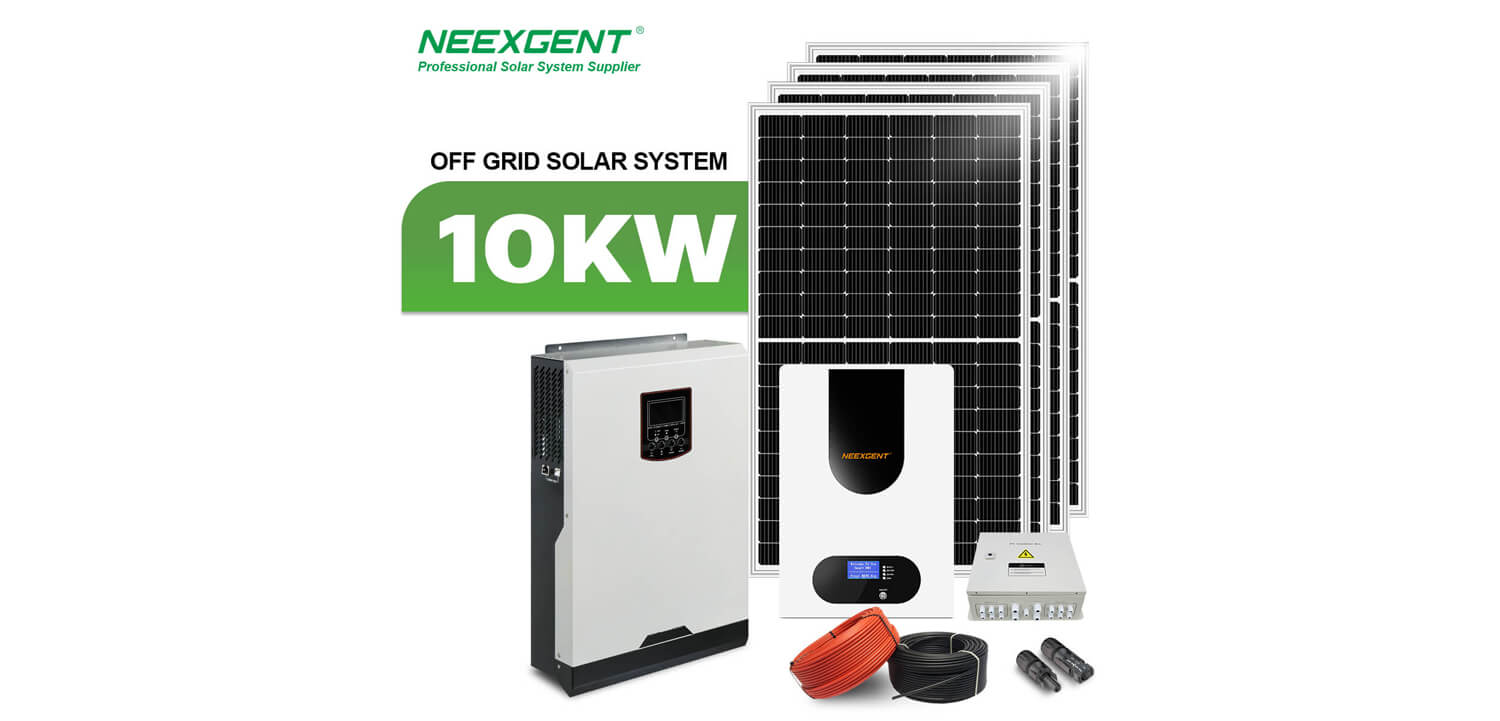South Africa, with its abundant sunshine and increasing energy costs, is a prime location for harnessing the power of solar energy. Solar energy systems have become increasingly popular among homeowners and businesses alike, providing a clean and sustainable source of electricity. However, purchasing a solar energy system is a significant investment, and it's crucial to ensure you buy a good system that meets your needs. In this article, we will explore the key factors to consider when buying a solar energy system in South Africa.

Neexgent 400w Solar Panel System
- Determine Your Energy Needs: Before purchasing a solar energy system, it's important to understand your energy requirements. Evaluate your average monthly energy consumption, including peak usage periods. This information will help determine the size of the solar energy system you need to meet your electricity demands effectively.
- Choose a Reputable Installer: Selecting a reliable and experienced solar installer is crucial to the success of your solar energy system. Look for installers who are certified by the South African Photovoltaic Industry Association (SAPVIA) or similar industry bodies. Consider reading customer reviews and requesting quotes from multiple installers to compare prices and services.
- Quality of Solar Panels: Solar panels are the heart of any solar energy system. It's essential to choose high-quality panels that can withstand South Africa's weather conditions and provide optimal performance. Look for panels that are certified and meet international standards, such as those from reputable manufacturers. Also, consider the warranty offered by the manufacturer, as it reflects their confidence in the product's durability.
- Inverter Technology: The inverter converts the direct current (DC) generated by the solar panels into usable alternating current (AC) electricity. Opt for high-quality inverters with a good track record for efficiency and reliability. Consider the inverter's warranty, as it is a critical component that may need replacement during the system's lifespan.
- Financial Considerations: Evaluate the financial aspects of purchasing a solar energy system. Determine the payback period and return on investment (ROI) for your specific system. Consider available financing options, such as loans or leasing, and assess their impact on your budget. In addition, research government incentives, such as the South African government's solar rebate programs, which can help reduce the upfront costs of installing solar energy systems.
- System Monitoring and Maintenance: Choose a solar energy system that includes monitoring capabilities to track its performance. This feature allows you to identify any issues promptly and ensure optimal energy generation. Additionally, inquire about maintenance requirements and warranties for both the panels and the inverter. Regular maintenance and cleaning of the solar panels are essential to maximize efficiency.
- Grid Connectivity and Net Metering: Understand the regulations and policies regarding grid connectivity and net metering in your area. Net metering allows you to feed excess solar energy back into the grid and receive credits or compensation for the surplus energy generated. Familiarize yourself with the requirements and benefits of net metering to optimize the financial returns of your solar energy system.
- Environmental Considerations: Solar energy is a clean and renewable source of power, significantly reducing your carbon footprint. When purchasing a solar energy system, ensure that the panels are manufactured sustainably and do not contain harmful materials. Choosing an environmentally responsible system aligns with your commitment to sustainability.
- Obtain Multiple Quotes: Request quotes from different solar energy system providers to compare prices, system specifications, warranties, and installation services. Avoid making hasty decisions based solely on price. Instead, consider the overall value, including the reputation and expertise of the installer and the quality of the equipment offered.
- Consultation and System Design: Engage in a thorough consultation with your chosen installer. They should assess your specific needs, evaluate your property's solar potential, and design a system that optimizes your energy generation. The installer should consider factors such as the orientation and tilt of your roof, shading issues, and available space for the solar panels. A well-designed system will maximize energy production and ensure the highest possible return on your investment.
- Assess System Performance and Guarantees: Inquire about the estimated energy production of the proposed solar energy system. A reputable installer should provide you with an accurate performance estimate based on your location, system size, and other relevant factors. Additionally, understand the guarantees provided for the system's performance, such as power output warranties for the panels and inverter.
- Evaluate Customer Support: Consider the level of customer support offered by the installer. A reliable company will provide ongoing support, answer your queries, and assist with any system issues or maintenance requirements. Read customer reviews and testimonials to gauge the installer's commitment to customer satisfaction.
- Research Local Regulations and Permits: Familiarize yourself with the local regulations and permits required for installing a solar energy system. In South Africa, regulations may vary between municipalities or provinces. Ensure that your chosen installer is well-versed in the permitting process and can assist you in obtaining the necessary approvals.
- Consider Battery Storage: While not essential, battery storage systems can enhance the efficiency and reliability of your solar energy system. Batteries store excess energy generated during the day for use during nighttime or periods of low sunlight. If you experience frequent power outages or want to achieve greater energy independence, discuss the option of battery storage with your installer.
- Educate Yourself: Take the time to educate yourself about solar energy and its benefits. Understanding how the system works, its components, and the financial implications will empower you to make informed decisions. Utilize online resources, attend workshops or seminars, and consult with industry professionals to expand your knowledge.

Neexgent 10kw Off Grid Solar System
Investing in a solar energy system is a significant step toward reducing your reliance on conventional energy sources and saving money in the long run. By considering the factors mentioned above, you can ensure that you purchase a good solar energy system that meets your energy needs, performs efficiently, and provides a reliable and sustainable source of electricity. Embrace the power of the sun and contribute to a greener future for South Africa.







